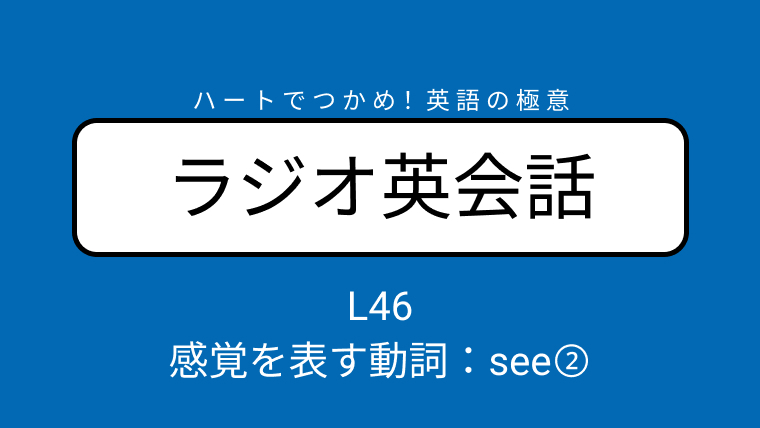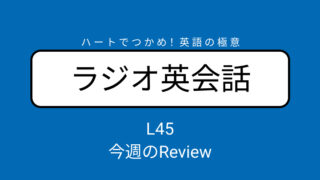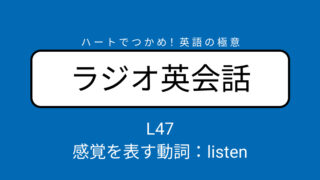NHKラジオ英会話のディクテーション「感覚を表す動詞:see②」L46 2022/6/13

ディクテーション
講師陣の英会話を書きとり(スクリプト)
大西先生、クリスさん、ろーざさんの英会話部分を書きとってみましょう!(大西先生のギャグもできるだけ書きとります。)
Opening
Ohnishi: いやぁ普段英語を勉強していて、難しいと感じる人も多いと思うんですけれども、日本語も相当ですよ。この間ですね「寝ないと言ったのではないですか」というですね、ドラマのシーンがあったわけですが、これを粗暴な言い方をするわけですね。「寝ねえんじゃねえのかよ」・・・これが分かるっていうのは恐ろしい日本語力だと思いませんか?
ラジオ英会話、ハートでつかめ英語の極意、講師の大西泰斗です。
Roza: Hey everyone. Akino Roza here. Can’t you see I’m busy?
Chris: I can’t see you are busy. You guys just stop chatting and concentrate now, OK? Chris McVay here.
Ohnishi: さぁそれではさっそく始めていきましょう。
ダイアログ和訳の後
今日はありませんでした
Practice 10:22
Chris: It’s practice time. Now guys, I’m sure you remember that the direction of look is outwards, while the direction of see is inwards. Therefor, it’s natural for see to have the meaning of thinking, understanding, imagining, checking, all our inside mental activities. So, let’s practice these.
Roza: And think in English.
Chris: The first one is a great example, “I see.” It’s crazy to say “I look.” Because look is only outwards. We need an inwards motion here, so let’s practice together. “I see.” “as you can see, ~”, “as I see it, ~”, “as far as I can see, ~”.
Roza: Let’s continue, “I can’t see him as a lawyer.” “I’ll see what I can do.”
Chris: Continuing on, “See who’s at the door, will you?” Once more, “See who’s at the door, will you?”
Roza: And the last one. This one you should definitely remember, “See to it that the agenda is sent immediately.”
You see? You did great.
Chris: Great job.
outwards = outward, inwards = inward だそうです。(英辞郎から)
あと、イギリス発音だと「アウトゥワド、インワド」で、アメリカ発音だと「アウトゥワード、インワード」だとありました。
クリスさんもそんな感じで言ってたかな。
Ending
・・・・・
Chris and Roza: Practice, practice, practice.
・・・・・
Ohnishi: というわけで今日はこの辺で。
All: Practice!
~ ディクテーションした内容やその解釈などに、聞き間違いや認識違いがある可能性はあります。ご了承ください


